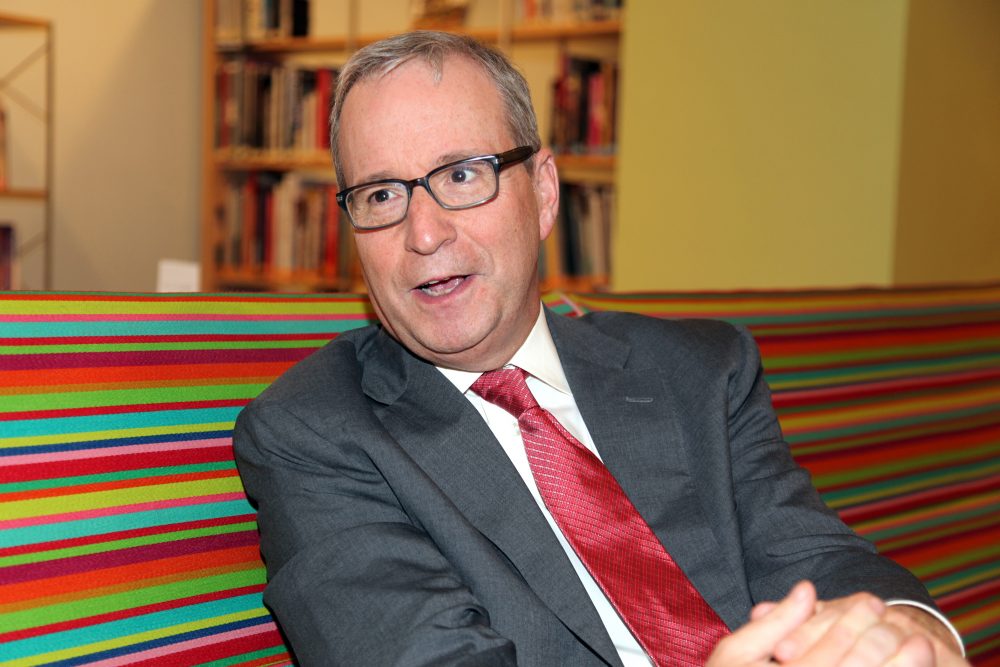
Photo by Aaron Salcido.
Ronald Brownstein is a senior editor of The Atlantic and a CNN senior political analyst. Before moderating a panel discussion for a Zócalo/UCLA event titled, “Does the Expansion of Presidential Power Threaten the Constitution?” at the Museum of Contemporary Art in downtown Los Angeles, he talked in the green room about roaming Greenwich Village and learning to read Elvish.
Is there a teacher who really changed your life?
My high school journalism teacher, Bill Granger. From first or second grade I had an idea that I wanted to be a writer, but I thought I was going to be a very soulful novelist or short story writer. Then my teacher said, “Why don’t you try working on the school paper?” I did, and I became editor of the paper, and I never looked back. That really turned me. I think I would’ve been a struggling, unsuccessful novelist, and now at least I have been able to support myself as a journalist for 40 years.
You grew up in New York City. What’s your best memory from that time?
My high school girlfriend was kind of preternaturally precocious and she knew everything in Manhattan. So during summers between sophomore and senior years I was on the Magical Mystery Tour of Bleecker Street Records and the Bleecker Street Cinema and Washington Square Park, the Judson Memorial Church. My world changed. I’d grown up in Queens, and really exploring the city was what I remember the most.
What are you reading now for pleasure?
I just read Easternization: Asia’s Rise and America’s Decline From Obama to Trump and Beyond, by Gideon Rachman, and Edward Luce’s new book. But I read a lot of fiction. The last book I read was Station Eleven, by Emily St. John Mandel. That was great. It’s a very literary, post-apocalyptic novel about a troop of Shakespearean actors that perform in a post-apocalyptic America. And Jennifer Egan’s A Visit From the Goon Squad was great.
When you were hoping to write the Great American Novel yourself, did you have a favorite U.S. 20th-century writer?
When I first started, the writer who had the greatest impact on me—probably like a lot of 10-year-olds in 1968—was J.R.R. Tolkien. I was in elementary school when the Lord of the Rings books were released in paperback, and they just blew me away. I loved the thoroughness and the totality of the world that he created, to the point of elvish languages and songs. Obviously the story is great and gripping, but I just loved the level of imagination. So that was one stage. I also love Updike and Roth, and Fitzgerald and Hemingway, and then Joyce and Faulkner.



